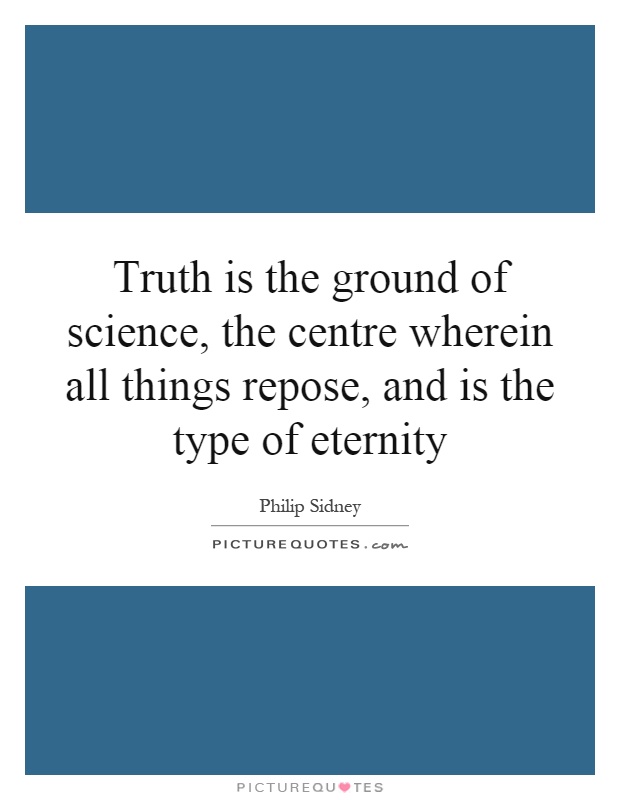Truth is the ground of science, the centre wherein all things repose, and is the type of eternity

Truth is the ground of science, the centre wherein all things repose, and is the type of eternity
Sir Philip Sidney, a prominent figure in the Elizabethan era, was not only a renowned poet and courtier but also a philosopher who believed in the power of truth as the foundation of all knowledge. In his work, "The Defence of Poesy," Sidney explores the relationship between truth and science, arguing that truth is the ground on which all scientific inquiry rests.Sidney believed that truth is the ultimate goal of all human endeavors, including scientific inquiry. He saw truth as the central principle that guides our understanding of the world and shapes our perception of reality. In his view, science is a tool that helps us uncover the truths that lie hidden beneath the surface of things. By seeking out these truths, we come closer to understanding the nature of the universe and our place within it.
For Sidney, truth is not just a static concept but a dynamic force that drives us to explore and discover new knowledge. He believed that the pursuit of truth is a never-ending journey that leads us closer to the eternal truths that underpin the universe. In this sense, truth is not just a goal to be reached but a process of continual discovery and growth.
Sidney also saw truth as a type of eternity, a timeless and unchanging principle that transcends the limitations of human understanding. He believed that by seeking out truth, we can tap into the eternal wisdom that lies at the heart of the universe. In this way, truth becomes a guiding light that illuminates our path and helps us navigate the complexities of the world.












 Friendship Quotes
Friendship Quotes Love Quotes
Love Quotes Life Quotes
Life Quotes Funny Quotes
Funny Quotes Motivational Quotes
Motivational Quotes Inspirational Quotes
Inspirational Quotes